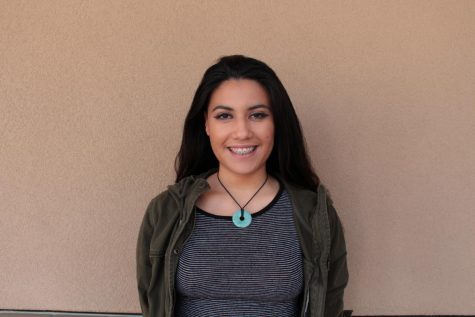DACA Controversy Continues
A sense of uncertainty is affecting recipients of the program
As part of Undocumented Student Week of Action, ASGCC hosted a concert event on Oct. 16 to celebrate and honor social activism in the community. The concert highlighted many current social issues, including those centered on immigration, LGBTQ+ advocacy and racial issues.
Organizers also made it a point to focus on the importance of voting and being active political stewards. This event brings to mind Deferred Action for Childhood Arrivals, or DACA recipients. These are individuals who are undocumented, and therefore unable to vote in the midterm elections on Nov. 6.
DACA is a federal legislation which extends benefits like employment authorization for recipients, who have entered the country under the age of 16. It also offers protection from deportation. An estimated 800 thousand DACA recipients throughout the nation are anxiously anticipating a ruling on the policy from the new administration. The way the administration votes on DACA will set the tone on how Congress will approach immigration reform in the future.
After a nine-month deliberation, the United States Court of Appeals for the Ninth Circuit, will have until Oct. 31 of this year to issue a decision on whether or not Congress can vote to end DACA. If a decision is not made at that time, the Supreme Court would then make an ultimate ruling on the future of this program. Since the Supreme Court makes rulings between October and June, there is a sense of urgency in the reform process, as the number of applicants are only increasing.
Revoking DACA would result in the inability for undocumented college students to pursue their careers. AB 540 is a California assembly bill that allows undocumented immigrants access to higher education. Legislation varies state to state, but in California the bill creates access to in-state financial aid.
Students would still be protected under AB 540 in California, to go to university and graduate with a four-year degree, but would be unable to find work without a legal work permit if DACA is removed. In addition, those affected, would no longer be protected from Immigration and Customs Enforcement (ICE) raids and deportations.
In a recent interview with a GCC student, Irvin Rendon shared his thoughts on being an undocumented college student and DACA recipient. He noted that many students are reluctant to ask questions, reach out, and that they experience anxiety as a result of their status.
According to Rendon, students don’t know there is a safe place such as the Dream Resource Center on campus. There, students are provided with legal advice, financial aid, scholarships, counseling and a sense of community. They also help individuals looking to renew their DACA, a process that can take up to four months. This is important because the program is currently on hold for future applicants, and is only available to those wanting to renew.
Rendon is a third year psychology major, pursuing a career in academic counseling to help children that have trouble in school due to an unstable life at home. He recognizes the importance of providing encouragement and guidance in order for kids to succeed. However, his career can be cut short if he is deported. He has been in the U.S. since the age of two.
Rendon is not alone.
Anthony Garcia, the DRC advisor, shared the importance of having open conversations about immigration. “Given the political climate, it seems to be very hostile towards people of color,” he argued. “It’s very important to give people a voice.”
With the November elections coming up, a sense of voter responsibly and empathy are vital, say critics, in order to advocate for basic human rights. Activists encourage those who want to get involved to reach out to groups like CARECEN, a non-profit in los Angeles assisting DACA recipients.

